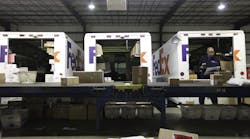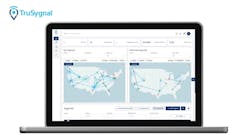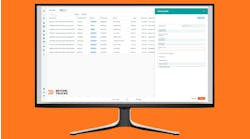Consumers that buy goods online are demanding faster delivery times for their purchases, yet still remain largely unwilling to pay for the transportation component of their purchases – a conundrum shippers and carriers alike will find difficult to solve.
According to research by AlixPartners, from 2000 thru 2013, e-commerce has experienced a 19% compound annual growth rate (CAGR) and over the last two years, there has been a 45% increase in the average number of annual orders made online.
Yet Josh Hubbard, on the firm’s directors, noted in a conference call hosted last week by Wall Street investment firm Stifel Nicolaus & Co. that “free shipping” remains either a determining factor or an important consideration in most online purchase decisions and thus is a “necessary cost” for those looking to establish or grow their e-commerce market presence.
“Some consumers are even willing to pay a higher total order cost in order to get free shipping,” he noted.
That data comes from surveys of online consumers conducted by AlixPartners and highlights how transportation networks serving e-commerce needs may need to evolve.
“Not only do consumers expect free shipping, but expectations for speed of free delivery are also increasing,” he said.
Pointing to his firm’s survey data, Hubbard noted that in 2012, the average acceptable wait time for free delivery of online-purchased goods was 5.5 days. But by as of this year, that number is down to five days.
Marc Iampieri, another director with AlixPartners, added on the call that a quarter of the firm’s survey respondents now expect free shipping in three days or less – and he anticipates such expectations to only become more widespread.
“If I take the two-day and the three-day results and add them together, we find that a quarter of the respondents want free shipping in three days or less,” Iampieri emphasized.
“Now, to me, there are some pretty big implications for shippers,” he stressed. “It means that they have to start looking at either a guaranteed two- or three-day service, or they have to locate distribution centers closer to consumers, so that there is a high probability of hitting them with ground service within two-to-three days.”
Looking into the future, assuming this trend continues, Iampieri said that will be pretty difficult for shippers to meet expectations for free shipping with increasingly rapid transit times, especially if the customer is not really willing to pay for the service upgrade.
Looking through the “demographic lens,” AlixPartners found that younger consumers are really the ones looking for two- and three-day shipping.
“If you look at the two-day cluster … that represents the 18-34 year old demographic; that's 30% of respondents in that category that want free delivery in two days or less,” he explained. “If you look at the three-day [cluster], we get up into the 42% range.”
Meanwhile the “one week or later” delivery expectation category is dominated by the 45-65+ age range, Iampieri pointed out.
“It is clear that it is the younger demographics they are looking for faster speeds, but maybe they are not willing to pay for it. ‘Free and faster’ is becoming the expectation,” he emphasized.
“And if you think through the demographics, there is a correlation between potential income and age group,” Iampieri added.
“Income rises with age, so these groups are the future [and] the future of what online consumers expect will start to look like these results,” he said. “Future preferences will be based on what the younger generation is saying now, and those preferences—those expectations—are for faster and cheaper.”



